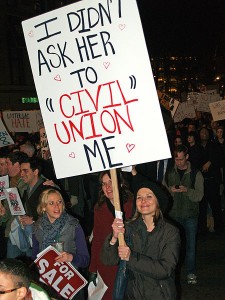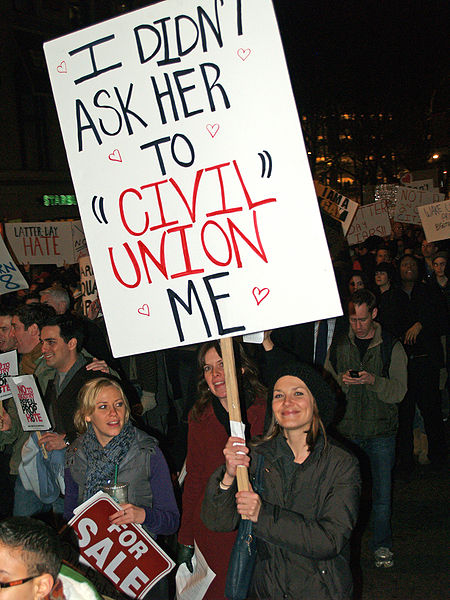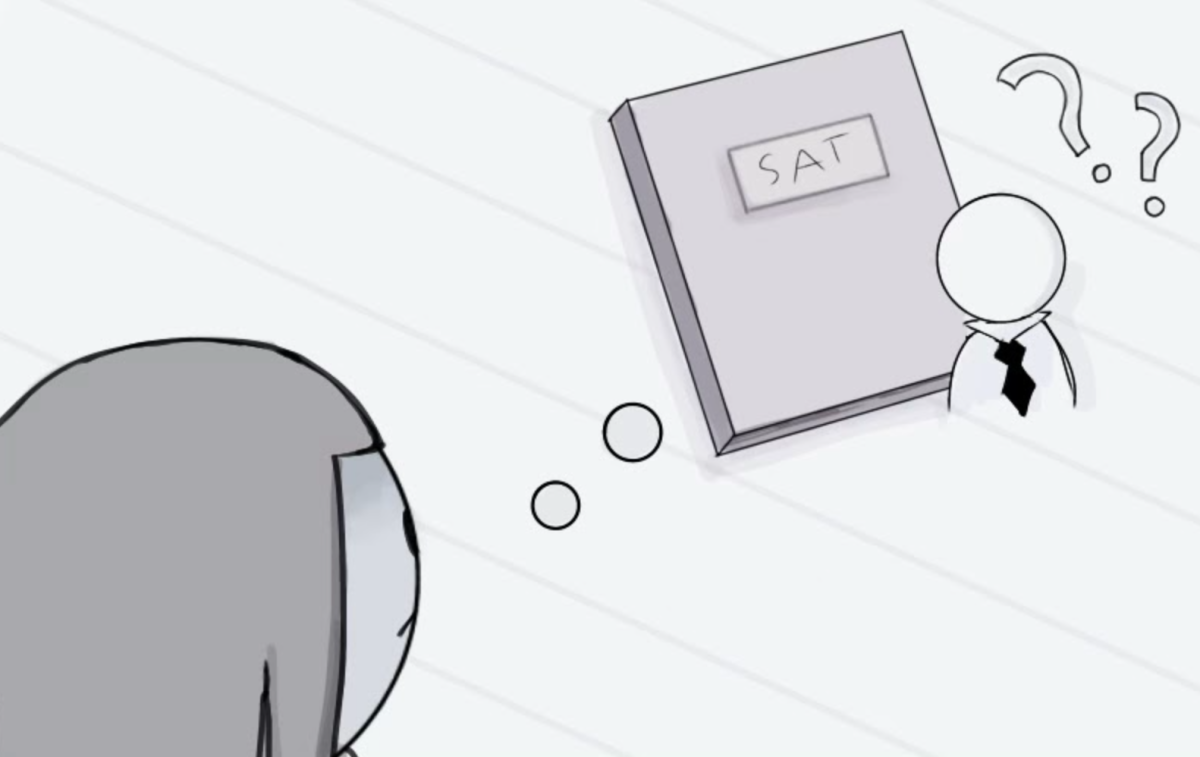
Gay marriage in Utah is a milestone, but the Utah case is not going to end in the sweeping gay rights case that we are looking for, and we need to look beyond this distraction, and find the best path forward.
A few weeks ago a federal district court said that Utah’s ban on gay marriage was unconstitutional under the recently decided Supreme Court case, Windsor. The Windsor case said the federal law, the Defense of Marriage Act (DOMA), was unconstitutional because it denied equality to gay married couples.
In effect, for a moment, the heavily conservative state of Utah had marriage equality. However, the Supreme Court has stopped gay marriage in Utah pending an appeal of the decision granting marriage equality.
Some on my side of the aisle are giddy with joy and believe that if the Court takes on the case, marriage equality might spread to all the states.
I would love to see that, but there is no reason for the Court to do that. At the most, I see Utah regaining marriage equality.
Let’s look at the facts of the situation. Utah had a anti-marriage equality law that were struck down by the federal district court because they violated the Fourteenth Amendment. In effect, for a week and a half there was marriage equality in Utah.
The two likely and possible Supreme Court answers to the marriage equality question is: refuse to decide or use a doctrine from the Proposition 8 case.
The first situation is very likely because the Court might not want to put a sweeping for or against opinion on gay marriage. For example, the conservatives have a good reason to fear that the liberals and Justice Anthony Kennedy, the same justices that defeated the discriminatory DOMA law. Likewise, the liberals would not want to move too fast because the legislative process will affirm the right of marriage with more credibility.
The second situation will give Utah marriage equality, just with a different reasoning. This one will rely on the idea that a government cannot take rights away from people, once those people have been given those rights. This was the way the Prop 8 case was decided in federal court. Again, no sweeping marriage equality decision.
In the two most probable routes the Court will take, neither will result in a sweeping marriage equality decision.
I’m sorry my fellow marriage equality advocates, we need to forget the Court and focus our efforts in legislation that promotes equality.
In the context of civil rights, the Court is slow and waits for a time when its decisions will be mostly supported, but controversial, nonetheless. Therefore, if we want equality quickly, it would be best to fight for it in the legislatures of states.
Of course, those fights will not be easy, nor will they be quick, but their successes are integral parts in the struggle for equality.













Alan Yan • Jan 30, 2014 at 5:31 pm
First, thank you to the both of you for commenting and I hope both of you will look into my other work from the past and into the future. To address Bill: I don’t believe that the Court should not be a viable strategy at all, I am only suggesting we put more effort into the legislative fight. Second, your argument that a legislative can take away rights from people is true however the Court can do the very same. For example, the Court in the Tinker v Des Moines case affirmed the First Amendment rights of students in the public schools. However during the the Hazelwood case, the rights of students to free speech was taken away and left to the states, therefore I do believe the Courts are just as big of a threat to rights as are the legislatures. To address Mr. Einhorn: thank you for the very factual comment. I understood Judge Shelby’s decision, however the thrust of my scenario was that the SCOTUS would have vertical adoption of the idea of not taking away rights because the LGBT community in Utah were technically given rights in the short period of time, although I doubt that would happen. Finally to address the both of you: Utah is important in the sense that we gain another state with equal marriage, but I am weary of the sweeping decision because I would apply the opinions of Justice Ginsburg on Roe v. Wade to marriage equality.
Eric Einhorn • Jan 29, 2014 at 11:59 pm
I admire your dedication to marriage equality. I must point out, however, that your analysis is substantially flawed, and seems to suggest that you have not read or understood Judge Shelby’s decision, found here: http://www.scribd.com/doc/192786624/Utah-Ruling-%E2%80%94-Same-Sex-Marriage
The Utah case is fundamentally different than the California Prop 8 case. First, the Prop 8 case involved the question whether California could lawfully strip the existing state right of marriage equality, which exceeded any recognized Constitutional rights, and had been upheld by the California Supreme Court, by way of a voter initiative to change the state constitution. Second, the official State position was that they could not, and so the governor and attorney general refused to defend the case. SCOTUS determined that the petitioners did not have standing to appeal the trial court’s ruling, so the Court invalidated the Ninth Circuit’s ruling, leaving Judge Walker’s decision striking Prop 8 as the final ruling.
In the Utah case, the state is defending the lawsuit so standing is not at issue. More importantly, The Utah case is based on the SCOTUS decision in Windsor, which, for the first time, recognized a fundamental right to marry, based on the 5th Amendment. Judge Shelby ruled, based on Windsor, that two consenting adults have a 5th Amendment right to marry, regardless of their sex, and that Utah’s denial of that right was unconstitutional.
Windsor’s acknowledgement of a fundamental right to marry was groundbreaking, although under-appreciated by much of the mainstream media. It did not go unnoticed by federal judges though. Besides the Utah case, federal judges in both Ohio and Oklahoma have also ruled in favor of marriage equality based on Windsor and a fundamental right to marry. The Utah and Oklahoma cases have been scheduled to be heard on an expedited basis, and by the same three judges. Also, in Nevada, the attorney general just withdrew their legal defense against marriage equality, based on a post-Windsor 9th Circuit case that required a higher lever of scrutiny based on a person’s sexual orientation. All of those cases will be resolved within several months. Whether any of these cases, or any other of the many pending cases get to SCOTUS first, the Court will be forced to directly address the question of whether the Constitution guarantees marriage equality, and may hear such a case before the end of this year. So the Utah case is far from a distraction; it is one example of a very solid argument in favor of a Constitutional right to marry, which could end this entire debate, just as Loving v. Virginia ended bans on interracial marriage.
Bill • Jan 29, 2014 at 2:49 pm
Your facts in the Prop 8 case are SO incorrect that it is impossible to take this piece seriously at all.
Your suggestion that leaving the civil rights of LGBT people as simply part of legislative duties is insane.
If rights can be doled out by the legislature, they can also be taken away.
ONLY the Supreme Court affirms rights, Alan. NO THER BODY is authorized to do so.
Your essay is full of so many factual errors that I encourage you to get your facts correct before undertaking a piece like this.